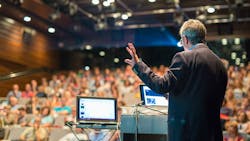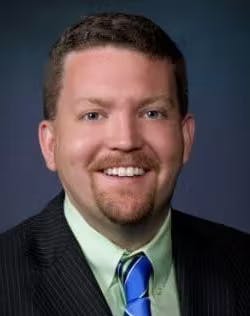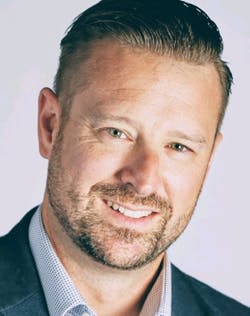What to expect at the 2023 Leading Reliability Conference
The Leading Reliability Conference provides participants with an opportunity to learn more about maintenance and reliability by attending live presentations, workshops, and trainings. In addition, attendees are also provided with ample opportunity to socialize and make connections – allowing participants to build relationships with influential professionals in maintenance and reliability from around the country. This year's event happens May 16-18 at the Hilton Clearwater Beach Resort in Clearwater Beach, Florida. Plant Services editor in chief Thomas Wilk recently spoke with the team behind the Leading Reliability Conference, including Shon Isenhour from Eruditio, Blair Fraser from UE Systems, Mason McNally from RDI Technologies, and Brian Shanovich from ACOEM. The group reminisced about last year’s event and outlined what attendees can look forward to at the 2023 conference.
Listen to Shon Isenhour, Blair Fraser, Mason McNally, and Brian Shanovich on The Tool Belt Podcast
SI: Well, and I think the big thing that you'll see with this conference and I think it's it is that fun environment that we create, it's not so serious. You know, you get to a lot of conferences and I kind of feel like it's so choreographed and you don't really get to talk to people. Everybody's on a schedule and then that sort of thing. And I think that's one of the things that a lot of people will see at this conference is, we're going to have fun. We're going to have a good time, but we're also going to learn a lot of things while we're there. And because of it, we get to spend a lot of times really batting around new ideas like Blair was talking about with the underwater sensor.
BF: It really came out where, Shon, you end up at some level being an MC at this conference, whether it's chosen or you just do it, I don't know. But I remember and it was humbling because I can't remember what day it was, in the opening session what you asked people to do is, if you’re here to learn about planning and scheduling, it’s one of your big issues you're facing your plant, put up your hands, and about 1/4 of the room puts up their hand. If you're here to learn about condition monitoring, put up your hands, and often it's the same people, there's some putting their hand up forever. I'm starting new in reliability, I just figured out what it is, I just put my hand up, right? And you have people that have mastered this aspect, this cornerstone of reliability: Learn from that person because this person is trying to learn. Eventually everyone put up their hand right, even us as vendors were like, yeah, I would like to learn a little bit more about planning and scheduling, right?
I thought that was very humbling just to see what everyone was trying to learn. And I think it gave a good representation of where everyone was at in their, for lack of a better term, “maintenance maturity” You have people that have been in this game for decades and decades, and you have someone you know coming up that says “this is my first conference, we run to failure, where do I start?” And I think that right there that mix of people compounded with the, I think you said it right Shon, there's a lot of different ways you can navigate this conference, but I would challenge a lot of the best conversations I have are waiting in the food line. There's a lot of coffee being had, right? Or in the reception dinners. It's those type of conversations if you just happen to be standing next to someone. Hey, what do you do? Where do you work? Those type of conversations there. And I think this conference does a really good job at facilitating both the learning sessions but also what we're doing and how we're going to approach conversations outside of the sessions, just in the hallway, happy hours, things like that.
BS: That good to hear. Just to kind of introduce what we do, it's been a long time since we've been to a conference and or a trade show. Well, we're re-introducing ourselves and it's exciting to hear about the camaraderie that goes around some of the bad jokes I'm hearing. So at least everybody has an opportunity to meet people.
I'm excited about it because even though ACOEM is a is a global company, we are kind of new to the U.S. market, so they have known us by different names. We were acquired by ACOEM six years ago and so it gives us an opportunity to re-introduce ourselves to these people that are coming to this conference. We have several presentations that we're going to be doing. We have a workshop for alignment and I'm doing a presentation on a technology that is unique to the vibration industry. I think that will be eye opening to a lot of those people that are in it.
Like they say, it's an opportunity that we've missed. The reason we stopped going to these conferences is it just seems that trend in the in the industry was trade shows were not the place to go, because of loss of talent, companies didn't have the opportunity to send people to these shows anymore. You didn't get the decision makers there. Conferences are not good for us sometimes because people are there to learn something, so they don't spend a lot of time going through the vendor section. They're there to try to understand new technologies so it's interesting to hear how this is organized. This is the first time we're doing it.
MM: Correct me if I'm wrong guys, but I mean, isn't that the basic premise of why this entire conference was formulated? I mean, the industry was essentially searching for something a little bit different. We wanted something smaller. We wanted a place for conversations and you know Blair and Shon's camaraderie or points about camaraderie are certainly evident. But one of the other unique aspects of this show that I experienced that was pretty neat was, not just the conversations that we could have kind of offline and at the food line, but the amount of conversations that were happening between attendees and the learning that was going on where you're putting people from all different types of industries and verticals together, and all of a sudden, you know they wouldn't normally have spoken to each other, and a lot of learning was going on just for peer-to-peer, not from us as vendors or thought leaders in the industry.
SI: I might even go so far as to kind of call this a humble conference and I don't know that those two words really go together very often. But if you think about it, as I stood in front of that group last year and asked questions about what they wanted to learn about, no one was holding back. You know, everybody was like, no, I want to learn about this. I want to learn about that. This is important to me, and it really did Mason, it drove exactly what you're talking about.
PS: Yeah, the space and the size and again, the camaraderie for me really let everyone mentally breathe a little. As Blair said, he talked about the new sensor that emerged from this conference, the example I think of as a keynote from a couple of years ago, there was a former VP of Disney Operations who talked about how he was in charge of improving reliability for the Test Track ride in EPCOT Center. And if I remember correctly, he said that initially they had planned for a little reliability shed to be added on to the ride to take the cars in there and check them every now and then while the ride was operational, and that part of the expense was struck from the original budget. So he didn't have his reliability shed.
Well, the ride kept breaking down and his boss told him to fix it and he had to figure out how to justify the cost of the shed. What he and his team did was they talked about, what is the cost of disappointment among customers who would arrive at EPCOT Center and not ride this ride? I think that specific way of thinking about reliability is that, there's a cost of unplanned downtime of course, there's a cost of production, but he had to really think through and calculate what was most valuable to his customers. And he and his brain trust put together what was the “cost of disappointment” of folks who didn't get to ride the ride, and they figured out the cash value of that cost was more than the cost to build the shed. So he got his shed and the ride is more operational these days, it's that kind of lateral thinking that happens at this conference. People really get a chance to talk about new ideas and new ways of thinking.
MM: Yeah, I'll be honest, when I when I first rolled up the first time I attended this conference, I rounded the hallway and I looked at where the conference was being held and I was like, wow, this is it, this feels like small. My first impression was, ”eh I don't know.” And then the longer the conference went on, not only did I want to keep engaging and come back, but now we're telling people within our own company at a conference we host, “no, there isn't enough space because everybody wants to be here to be part of those types of conversations.”
BS: I'm going to age myself here, so I'll be careful. I've been doing this for going on 33 years now. The thing that I find pretty interesting is that you would think after 33 years in an industry when we're in reliability, you would think that migration of thinking would go to the point where everybody would be on the same page. The thing that I find interesting right now is that what I was going through in the early ‘90s is what I'm going through now. There are a lot of companies that are still trying to discover reliability and the advantages of it. I don't know if you guys have witnessed the same thing.
UE Systems is very, very active out there, I think I get 3 emails a day from you guys. Going out there and promoting the value of reliability, but it's just connecting to the people on the other end to see the advantages. You're talking about return on investment, and I think some of those things are lacking. I still think as a supplier we owe that to the industry. We need to be better at getting this information out and showing them the value of what they're doing, (but) the value proposition just isn't sticking. I don't know if you guys are seeing the same thing.
SI: From my perspective, a lot of what we talk about at this conference really is about that value proposition. I see a lot of discussions around “how do we lead it” as well. So it's not just a value proposition to purchasing the technology or the value proposition of implementing the solution.
There's a speaker from Enel (Green Power), his name is Milan, he'll be speaking I think it's on day two and I think he's going to really bring some of those leadership components in too, because it's not just on the vendors, it's also a lot of these attendees have to be sales people within their own organization.
BS: That's interesting, because I've always said that what happens at most of these conferences is we're preaching to the choir, and that the real decision makers need to attend these, or we need to figure out a way to get our message to them. The ones who hold the money, the ones who hold the decision making within the organization. Sometimes you're you get those people at this.
It sounds as if that's the type of attendees that come here because it's important that we get the real people. I can tell a maintenance person they understand the value of what I'm trying to sell them is giving them the information to have, like you said, to sell it internally. We all are sales people in our lives sometime, if it's in our marriage or if it's – I'm not a parent so I can't tell you how hard it is to sell the children, but I heard it's impossible – but I can just see the struggle with some companies. You get to some of these bigger organizations, it puzzles me why they just haven't bought into this yet. The more I hear about what you say this this conference allows us to do, it gets more and more exciting to be part of it.
PS: I want to mention real quick that there is a link on the Leading Reliability website to a business justification letter for those who are interested in going now, and need to sell this to the supervisor or to their team. It really frames out some of the value of the conference, and what people are going to get in a very concise format. If anyone's listening to this and wants to see that letter go to the Leading Reliability website, it's right there linked off the front page.
SI: I was going to say one more thing. You know, he was talking a little bit about bringing in the leaders and bringing in folks that are going to help drive these things forward and sell them in their organization. We do have a workshop going on, and it's going to be all focused on leadership from start to finish. Myself and Brian Hronchek are going to be taking the group through a lot of really new (at least new to the Eruditio world) topics that are specific to leaders and what leaders want to do, and how they get their people to do the things that they need them to do. I think it's going to be a pretty fun workshop, a lot of interactive activities, and so should be a really good time for those that are trying to figure out, “How do I lead this? How do I lead my people to do the things that I know we need to do?”
PS: And it goes right back to the name of the conference.
BF: I had a comment this for Shon. I was going to say, how unlike Shon to have an interactive workshop. (laughter) If you're sitting down, if you fall asleep in any Eruditio workshop, you had too much fun the night before, which can happen. Also if you don't follow Brian Hronchek on LinkedIn, his posts are just incredible, often relating back to his time serving in the military. His post recently was just a phenomenal read. Am I allowed to sit in through that Shon?
SI: You are. If you can sneak away from yours long enough, you can make it happen.
BF: I have to leave my own to go to yours? That's going to be awkward.
MM: I'll stand in for you.
SI: Brian is great. I spent the week with him in one of our client sites this week working on an implementation of reliability. He's very well-read, so he brings a lot of content in from that perspective, but he's also very experienced, both as you said in the military as well as in industry, and so sometimes the conclusions he draws just blow me away. So I think people will really enjoy that session.
BF: And then from last year, two things that stood out, other than the roasting of myself twice in one panel discussion which I don't hold a grudge. That's fine, right, Shon? It hasn't sat with me for a year. That's fine.
SI: Yeah, it seems like you've almost forgotten about it.
BF: Last year the keynote was the guy from Magical Dude Consulting, and how phenomenal that was. I remember I sat behind you, Tom, and we were partnered up a few times because we had to pitch some horrible ideas. Remember that exercise? “Your idea was just horrr-rrible!” I think we're going to fly in a spaceship and do things. But I still remember the moments, and the guy behind me was from a pharmaceutical company and we had to talk about the first thing we saw. And he lifted his coffee up and there was a coffee stain below his coffee cup, and I said, OK, we're going to talk about this coffee stain. And he automatically went to this airline, about how it’s a representation of how clean their tray tables are to how well they maintain their aircraft, right? So if you bring down that tray table and it’s dirty, you don't have a high sense of maintenance, across the engine and the rest of that stuff. But, how he immediately put that together was just incredible. I’m like, all right, you won this, you won this game!
The other one was Milan in his talk. I remember he had his video about how leaders often are the first to do something different. They had this video of this guy at a festival dancing just by himself, he looked like an idiot just flaring his eyes, and all of a sudden another person joined them, then another person. The rest of the thing, the whole festival is doing that same dance, and that one video I'll never forget the impact. So I look forward to our keynote as well as Milan's talk as well.
PS: Well, we're about at time for the podcast guys. Again, thanks for sharing not only the kind of presentations we're going to see, but also the new stuff people can experience and see, and also the value of attending. And Blair, you've got 8 weeks I think now to run through all the Marvel movies, in case I ask that question again.
BF: I just did Harry Potter, if that helps. Does that give me any credit?
SI: No, that doesn't count. Star Wars or the Marvel movies, those are your options Blair.
BF: And I didn't do all of Harry Potter. I saw kind of the first two and the last one, so there were some gaps in the middle, but…
MM: Were you admitting that you still hadn't watched Star Wars, or that you had watched every piece of Star Wars?
BF: You have to go to the conference to find that out.
PS: Blair, I sympathize. My answer to that question would have been “Doctor Who” so you can say Harry Potter all you want. Thank you guys for being on the podcast today, Shon, Blair, Mason, and Brian, and I will see you in eight weeks on Clearwater Beach. Can't wait.
About the Author

Thomas Wilk
editor in chief
Thomas Wilk joined Plant Services as editor in chief in 2014. Previously, Wilk was content strategist / mobile media manager at Panduit. Prior to Panduit, Tom was lead editor for Battelle Memorial Institute's Environmental Restoration team, and taught business and technical writing at Ohio State University for eight years. Tom holds a BA from the University of Illinois and an MA from Ohio State University



